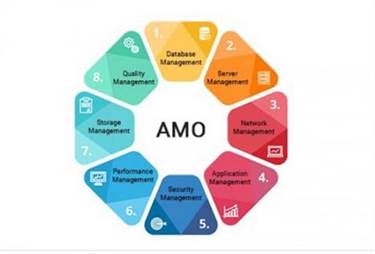One such project running on the VeChainThor blockchain, has attracted interest from BMW. Stamping shipments with barcodes and seals are some of the traditional methods used to identify that a particular material comes from a trusted source. Another technique that is quickly gaining traction across the industry is adding chemical tracers to a batch of material.

In contrast to traditional paper-based systems and digital databases, blockchains are immune to accidental data loss or deletion. Leading car manufacturers have even joined forces and launched the Mobility Open Blockchain Initiative to explore the potential of blockchains in the automotive industry. I am the founder and CEO ofApriorit, a software development company that provides engineering services globally to tech companies. As Global Blockchain Technology Market report predicts, blockchain technology will grow at a CAGR of 55.59 percent between 2017 and 2021.
Digital twin vs. digital thread: Two complementary ways to digitally replicate assets
He devised blockchain as the mechanism through which bitcoin transactions would be executed. For our discussion of automotive applications for blockchain, you can forget about Bitcoin — that is, unless you plan on using the cryptocurrency to pay for your next car. Now that you have an idea of what “connected car” is all about, we can move on and explore the fundamentals of blockchain technology, as well. In a moment, we will explore how the two are merging to produce the automobile of the future. With each vehicle equipped with more than 200 smart sensors, a deeply-connected infotainment system, and advanced cloud-based core informatics, the need for data management will be as crucial as maneuvering through rush hour traffic.
Below are a few of the use cases Tractica has identified for companies in the automotive sector to extract value from ledgers distributed and shared among one another. Up to 2013, most people who had heard about blockchain were avid speculators trying to monetize the high volatility of the crypto-currency Bitcoin. In recent years, blockchain has become one of the hottest technologies in C-suites globally, with more than $1.7 billion of investment in the last three years. Although the financial services industry was the first mover, other industries have quickly followed, either sensing the huge opportunity or at least worrying about being left out by innovative start-ups.
KEY MARKET INSIGHTS
The future of the automotive industry will be somewhat different from today’s market. It demands more flexibility by providing on-demand and customized facilities like automated, sharing, and wired vehicles. Blockchain has the potential https://www.globalcloudteam.com/ to be instrumental in underpinning the industry transformation. In 2019, IBM filed a patent for a project that would permit it to manage information and interactions for self-driving autonomous cars that using blockchain technology.
In the future, autonomous vehicles will communicate with other vehicles, traffic lights and other unauthenticated devices. Blockchain could be used to secure this communication and to ensure that it only occurs between relevant entities, so that it cannot be hacked by unauthorized outsiders. Now that we’ve explored how blockchain technology can benefit the automotive sector, let’s look at some particular use cases and a couple of existing solutions. Blockchain technology has come a long way since it was unleashed upon the world some 10 years ago.
Operational Challenges in the Automotive Industry
The first challenge facing commercial blockchain in the automotive sector is the sheer number of parties that might be asked to adopt decentralized ledgers. This, in addition to dynamic and geographically variable regulatory regimes, are factors which will have to be overcome for broader adoption in order to achieve greater value and efficiency. Some raw materials like cobalt or wolframite come from sources that are difficult to monitor, like mines in developing countries. That’s why the BMW Group is pursuing blockchain-based pilot projects that make the path of minerals traceable.
- However, by storing the complete history of a vehicle on a blockchain, this issue can be easily resolved.
- Here, blockchain in automotive can be used to ensure that every step of the supply chain is documented and the resulting documentation is securely stored, forgery-proof and readily available for inspection.
- Whether you are an enterprise or a fast-growing tech company, we can help you succeed.
- Blockchain and smart contracts will enable this data to be stored in a decentralized, shared ledger format.
- It specializes in a diverse tech stack and major blockchain-related programming languages .
Provenance, transparency, and security are the key factors that make Blockchain one of the most inevitable technologies today. In the connected car industry, smart contracts can be embedded in manufacturing blockchains to automatically release purchase orders at certain phases of the manufacturing process. Supply chains can benefit from contracts being automatically awarded to the supplier with the largest inventory on hand. And buyer financing can be approved based on smart contracts that automatically evaluate credit ratings.
Tech Stack and Verified Expertise
Besides MIT Media Lab, which is part of Massachusetts Institute of Technology, there are several partners also joined in the project. Berlin-based Big chain DB, which is building the database, Oaken Innovations based in Dallas and Toronto, is developing an application for car-sharing and payments, and Israeli startup Commuterz is creating car-pooling software. Toyota is also adapting vehicle’s sensors to collect driving data and store in a blockchain for reducing car insurance rates. An early example of blockchain supporting transparency across the above interactions was recently announced by Renault. The French automaker is piloting adigitized car maintenance program, which uses blockchain as a shared ledger to log all car repair and maintenance history in one place. The next pilot, it says, will focus on vehicle-based microtransactions – essential to integrating the IoT with the exchange of value.

Blockchain technology could take the evolution of the automotive industry even further. In particular, smart contracts can be used to automate processes like rental application submissions and payments. My blockchain development team built a solution with balance-locking functionality that works as an additional fraud prevention measure for car owners and customers. You can also use a blockchain to store an immutable copy of all rental histories, which will be useful during investigations of car incidents or insurance claims. The company has experience in implementing blockchains, smart contracts, and simple automated decentralized apps based on Ethereum blockchain and other platforms.
Notable FinTech Software Vendors to Watch in 2019
Saying nothing of high risks of financial losses, it’s both difficult and costly to fix smart contracts after their deployment. The contract may also perform poorly and be challenging to support if its code is redundant or has a lot of inconsistencies. For example, you can leverage a blockchain as data storage to make sure no critical records are lost, speed up car value calculations or automate some of your agreements using smart contracts.

Blockchain has the potential to offer a whole world of technical possibilities both to businesses and developers. First implemented as a distributed ledger underpinning bitcoin, it is now known as an … The company has established long-term cooperation with more than 50 clients worldwide. Among its partners, there are such industry leaders as Lebara , Currencycloud , Gogo (global in-flight connectivity provider), a global P2P lending platform, HotSchedules , and other companies.
Cutting costs
The digital blockchain method would therefore be more secure against forgery than conventional proofs of a vehicle’s mileage. “Theoretically, you can forge a stamp for checkbooks with a color printer,” says Dr. Luckow. While the blockchain still lacks clear governance, you can always use applicable cybersecurity and financial industry standards https://www.globalcloudteam.com/areas/automotive/ and regulations as a basis for designing a secure and compliant solution. With these challenges in mind, the blockchain has opened up numerous potential use cases to solve the struggles of traditional payment methods. The popularity of ridesharing and carsharing services is increasing as owning a car becomes more expensive than sharing one .

